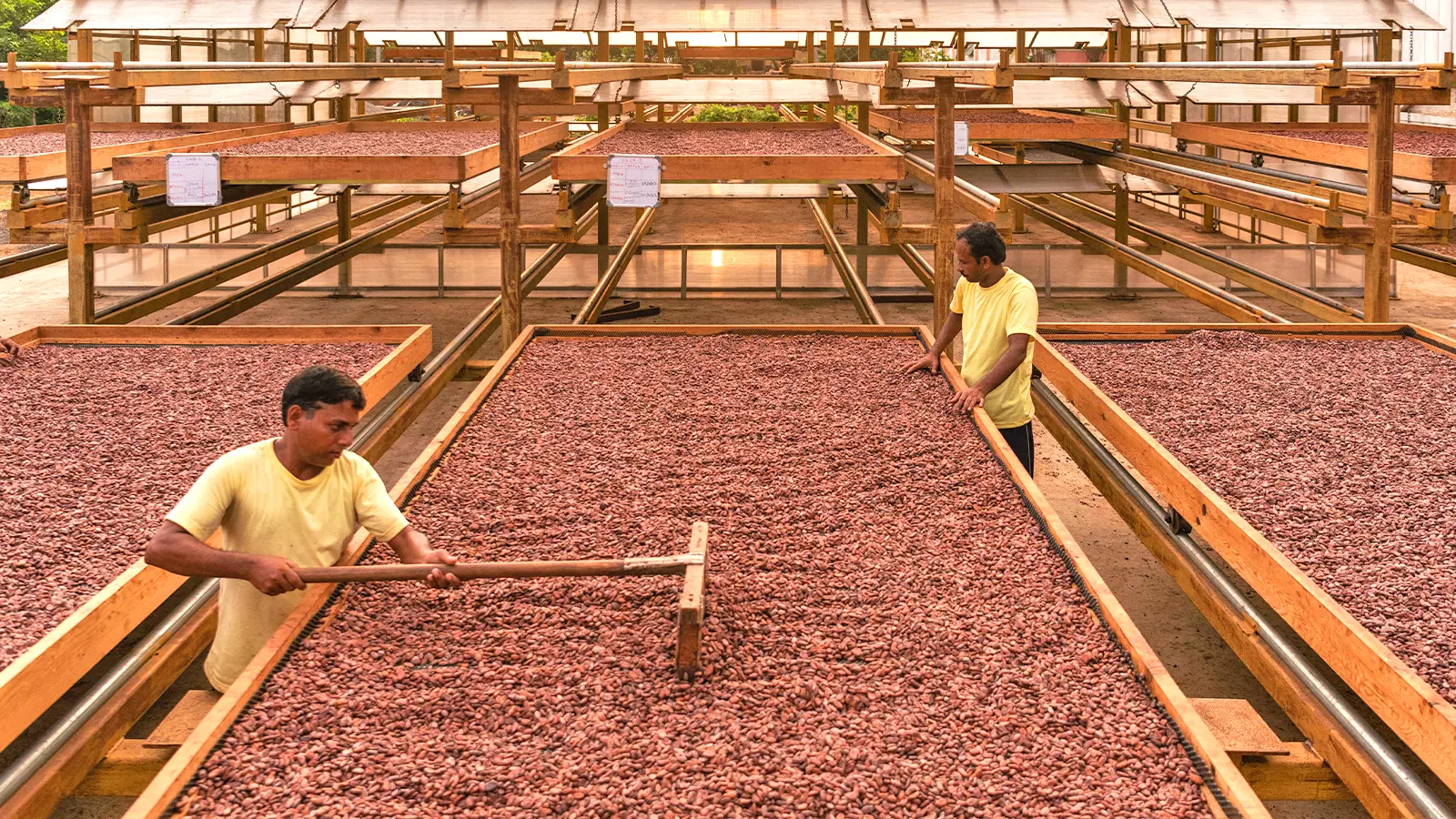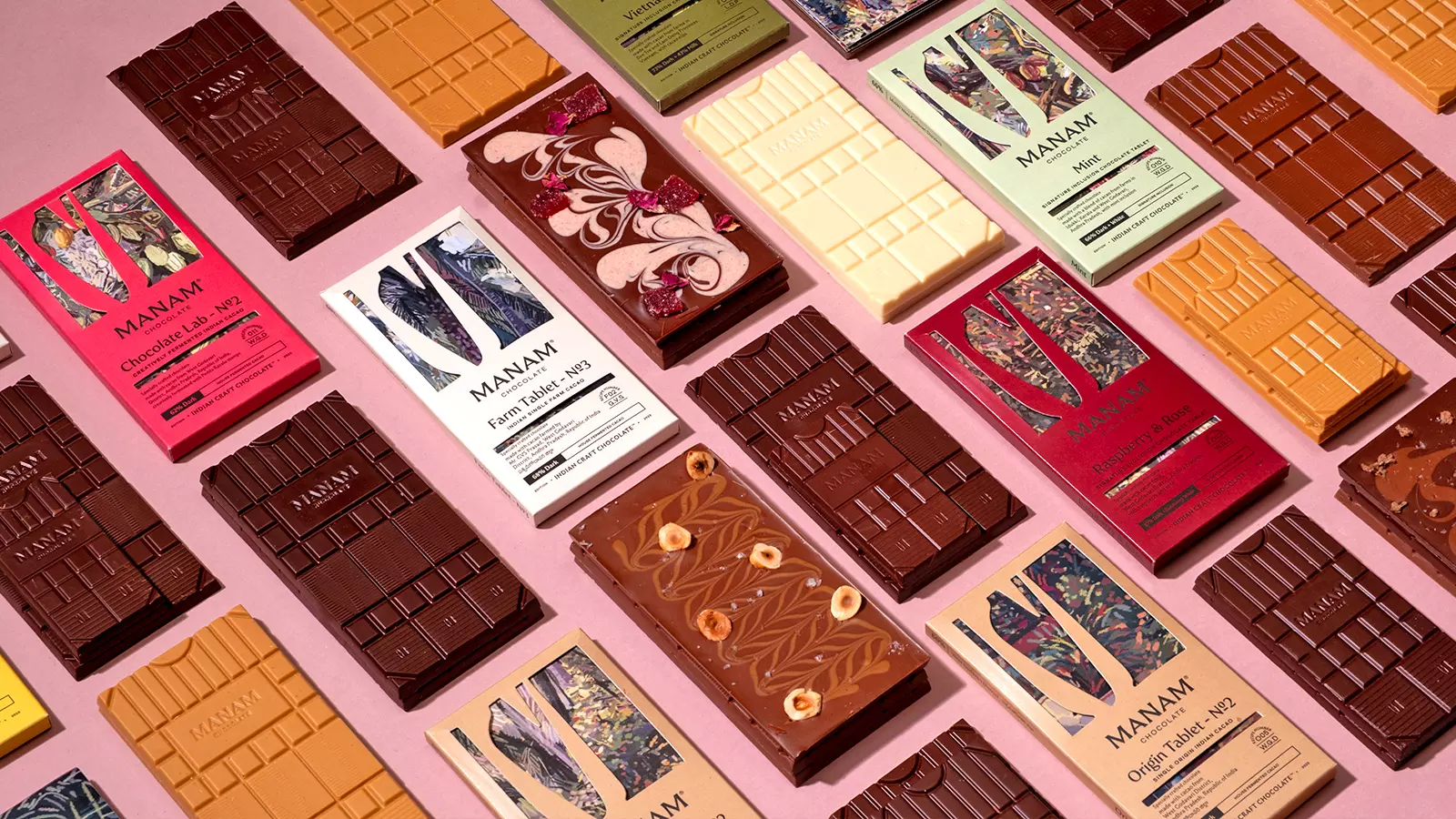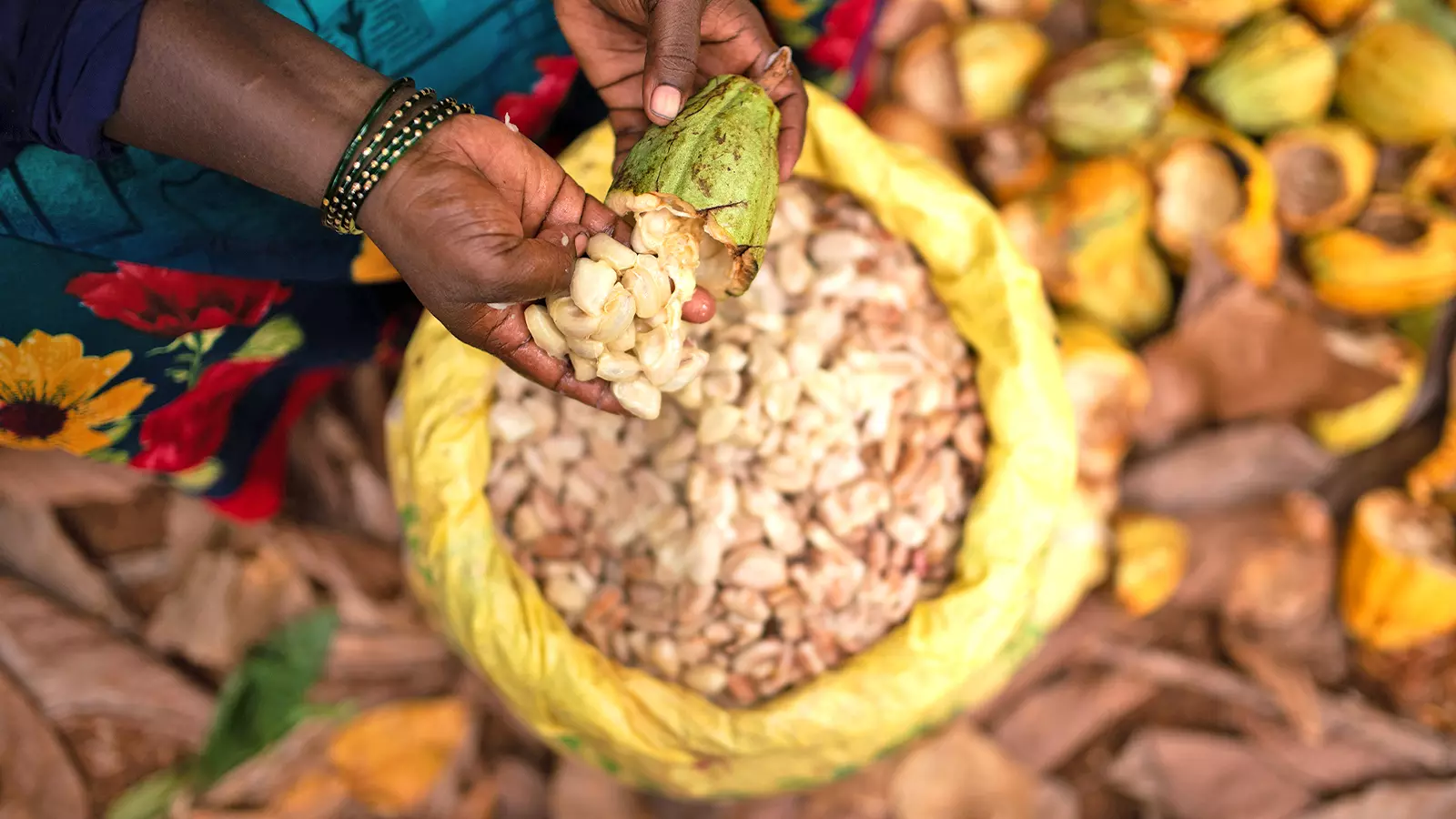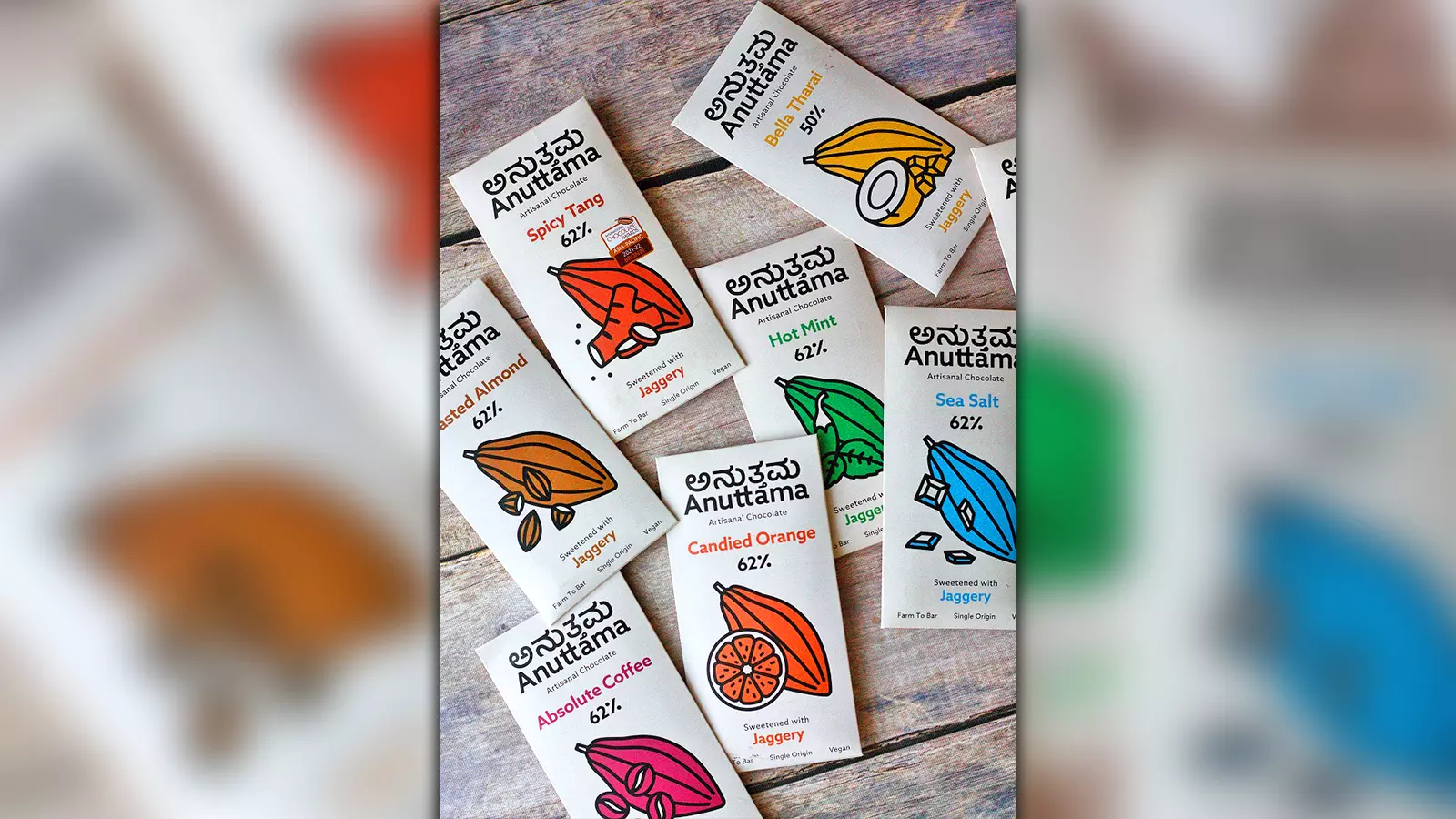
- Home
- India
- World
- Premium
- THE FEDERAL SPECIAL
- Analysis
- States
- Perspective
- Videos
- Sports
- Education
- Entertainment
- Elections
- Features
- Health
- Business
- Series
- In memoriam: Sheikh Mujibur Rahman
- Bishnoi's Men
- NEET TANGLE
- Economy Series
- Earth Day
- Kashmir’s Frozen Turbulence
- India@75
- The legend of Ramjanmabhoomi
- Liberalisation@30
- How to tame a dragon
- Celebrating biodiversity
- Farm Matters
- 50 days of solitude
- Bringing Migrants Home
- Budget 2020
- Jharkhand Votes
- The Federal Investigates
- The Federal Impact
- Vanishing Sand
- Gandhi @ 150
- Andhra Today
- Field report
- Operation Gulmarg
- Pandemic @1 Mn in India
- The Federal Year-End
- The Zero Year
- Science
- Brand studio
- Newsletter
- Elections 2024
- Events
Beyond cocoa: The great Indian artisanal chocolate factory

“Life is like a box of chocolates. You never know what you’re gonna get,” this iconic line from the movie Forrest Gump (1994) perfectly encapsulates the mystery and delight that chocolate brings to our lives. Yet, in India, for the longest time, the chocolate scene has been somewhat predictable – dominated by a few mainstream brands offering milk chocolate and what some purists...
“Life is like a box of chocolates. You never know what you’re gonna get,” this iconic line from the movie Forrest Gump (1994) perfectly encapsulates the mystery and delight that chocolate brings to our lives. Yet, in India, for the longest time, the chocolate scene has been somewhat predictable – dominated by a few mainstream brands offering milk chocolate and what some purists might argue isn't even chocolate – white chocolate. However, a delicious revolution is underway in the Indian artisanal chocolate industry, as innovative chocolatiers are pushing the boundaries of tradition and flavour with exotic and unconventional ingredients.
"From a quest for quality Indian chocolate to pioneering the craft chocolate movement, by establishing Distinct Origins and India's largest fine flavour Cacao Fermentary, we're not just making chocolate; we're shaping a sustainable, transparent future for Indian cacao. With each bar, we share a taste of our journey and our commitment to excellence,” said Chaitanya Muppala, founder, Manam Chocolates.
How it all started
Chocolate’s journey began centuries ago in Mesoamerica, where the ancient Mayans and Aztecs revered cacao as the "food of the gods”. From there, chocolate made its way to Europe, where it underwent transformations, evolving from a bitter drink to the sweet confection we know today.

Cacao fermentery in Andhra Pradesh's West Godavari district.
In India, chocolate arrived much later. It was introduced by the British in 1798 with the establishment of eight Criollo cacao plantations in Courtallam. However, it wasn't until the mid-1960s when Cadbury, a prominent British confectionery company, initiated cacao cultivation in Wayanad, Kerala, that the industry gained significant momentum. Despite this, its popularity remained limited for decades, dominated by a few mass-produced brands offering mainly milk chocolate variants. White chocolate, often criticised by purists for its low cocoa solids content, also entered the Indian market, particularly targeting children, albeit with mixed reception.
“The chocolate industry is globally recognised as a highly exploited sector. Over decades, relentless marketing campaigns have inundated supermarket shelves with subpar products, particularly targeting children. These products are often loaded with excessive sugar and hydrogenated oils, masquerading under labels such as hydrolysed chocolate," said Gurudeep Buduguntae, founder of Drip and Drop Coffee and a food blogger.
Bean to bar
But times are changing. In recent years, a growing number of artisanal chocolatiers in India have been redefining the chocolate landscape, infusing it with creativity, craftsmanship, sustainability, hygiene, and a dash of Indian flair. The Bean To Bar culture within its chocolate industry is a movement that emphasizes a direct, hands-on approach to chocolate making, where artisans meticulously oversee every stage of the process, from sourcing single origin cocoa beans to crafting the final product. By sourcing cocoa beans directly from farmers or cooperatives, these bean-to-bar chocolatiers ensure traceability and quality control, fostering transparency and sustainability in their supply chains.
“Our commitment to quality cocoa beans goes hand in hand with our dedication to sustainability and social responsibility. We address the challenges of sourcing by partnering with farms that prioritize productivity, empowering local producers to prosper while upholding ethical standards. Through initiatives like our partnership with Barry Callebaut, we ensure that our cocoa sourcing practices align with the goal of achieving 100% sustainable chocolate by 2025, thus contributing to a more equitable and environmentally conscious chocolate-making process,” said Zaid Sait, founder, Le Chocolat.
One of the most exciting aspects of this chocolate renaissance is the use of innovative ingredients that go beyond the traditional cocoa bean. From aromatic spices like cardamom and saffron to tropical fruits like mango and coconut, these artisans are blending flavours to create unique and tantalizing chocolate experiences. From Naviluna, Manam, Le Chocolat, Smoor, Bon Fiction, Chitra’m, Mason & Co, Paul and Mike, to the latest Anuttama, these artisanal chocolate brands are making their way through the Indian markets and winning international awards too.

The Manam Chocolate Tablet Collection.
Imagine biting into a rich, dark chocolate truffle infused with the warmth of Indian chai spices or indulging in a creamy milk chocolate bar studded with chunks of ripe Alphonso mango. These are just a few examples of the inventive combinations that are captivating the taste buds of chocolate enthusiasts across the country.
“I find artisanal chocolates in India to be a delightful treat that I thoroughly enjoy. What sets them apart for me is not only their rich and diverse flavours but also the commitment of some brands to use non-processed sugar. This conscious choice aligns with my desire to provide myself and my family with healthier options. The intricate blends of ingredients and flavours crafted by artisanal chocolatiers add an element of indulgence to my life while still maintaining a sense of mindfulness about what I consume. Overall, I appreciate the creativity, quality, and healthier ingredients that artisanal chocolates bring to the table, making them a special indulgence for me as a new mother,” said Meghana Annegowda, home-maker from Bengaluru.
Moreover, the use of locally sourced and sustainable ingredients has become a hallmark of many artisanal chocolate brands in India. Whether it's single-origin cocoa beans from the lush plantations of Kerala or organic jaggery from rural Maharashtra, these chocolatiers are not only elevating the flavour profile of their creations but also supporting local farmers and communities.
“We maintain the delicate balance between innovation and tradition by infusing our artisanal chocolate creations with innovative ingredients while staying true to our culinary heritage. Our approach involves meticulous research and experimentation to ensure that each new ingredient complements and enhances the rich flavours of traditional chocolate recipes, creating a harmonious blend of old and new that delights the senses,” said Zaid Sait.
But it's not just about the ingredients – it's also about the artistry and craftsmanship that goes into making each chocolate bar or bonbon. Many of these chocolatiers draw inspiration from India's rich cultural heritage, incorporating traditional motifs and designs into their packaging and presentation.
“Consumers are increasingly in search of distinct flavours, premium ingredients, and artisanal chocolates. With a heightened awareness of health and wellness, there is a growing desire for chocolates featuring healthier components, including reduced sugar content, natural sweeteners, and the incorporation of superfoods. The surge in popularity of veganism and dairy-free diets has significantly impacted the chocolate market, prompting a demand for plant-based chocolate alternatives. Chocolatiers and culinary experts are pushing boundaries by experimenting with unconventional blends, infusing chocolates with local spices, herbs, and fruits,” said Balasubrahmanya PS, Co-founder, Anuttama.

The produce of Cacao Farms in West Godavari.
“In the domains of hotels, restaurants, cafes, and bakeries, many are experimenting with bean to bar chocolates to include in their beverages. Nowadays, cafes look for alternate chocolates instead of commercial compound chocolates, Anuttama is successful in providing various varieties of chocolates for their hot chocolate recipes. Few are already using bean to bar chocolates in their beverages. One more trend is the provision of chocolate pairing experiences. This innovative practice involves pairing chocolates with a variety of beverages such as wine, coffee, or tea, cheese as well as other food items. The goal is to elevate the overall tasting experience by creating harmonious flavour combinations that appeal to discerning palates,” he added.
In addition to flavour experimentation, some artisanal chocolatiers are also exploring innovative techniques and processes to enhance the texture and mouthfeel of their chocolates. From bean-to-bar production methods to tempering chocolate with precision, these artisans are dedicated to perfecting their craft and delivering a truly exceptional product to their customers.
Packaging and online sales
Artisanal chocolate brands pay meticulous attention to packaging, considering it an extension of their craftsmanship. Each box or wrapper is meticulously designed, often reflecting the brand's ethos and the unique flavours within. Beyond aesthetics, packaging serves to protect the delicate chocolates and enhance their presentation, creating a sensory experience from the moment one lays eyes on the exquisite box to the last decadent bite.
Furthermore, the rise of e-commerce platforms and social media has provided a platform for these small-scale chocolatiers to reach a wider audience beyond their local markets. Through mouthwatering food photography and engaging storytelling, these brands are connecting with chocolate lovers across India and beyond, spreading the joy of artisanal chocolate one delectable bite at a time.
"Packaging is more than just a wrapper; it's a storyteller, an ambassador of our brand's ethos. Inspired by the indigenous roots of Manam Chocolate, our packaging reflects the rawness of cacao, the artistry of chocolate-making, and the essence of our origin in West Godavari. Each box carries not just chocolates but a piece of our heritage, encapsulating the journey from bean to bar with every exquisite detail,” said Chaitanya Muppala, founder, Manam Chocolates.

In conclusion, the world of chocolate in India is undergoing a delicious transformation, thanks to the pioneering efforts of artisanal chocolatiers who are pushing the boundaries of flavour, creativity, and sustainability. As we savour these innovative creations, let us not forget the humble cocoa bean – the magical ingredient that continues to inspire and delight chocolate lovers around the world. So, the next time you reach for a chocolate bar, dare to venture beyond cocoa and explore the tantalizing world of artisanal chocolate in India. Who knows what delightful surprises await? As Forrest Gump would say, "Life is like a box of chocolates." And in India, it's a box filled with endless possibilities.
